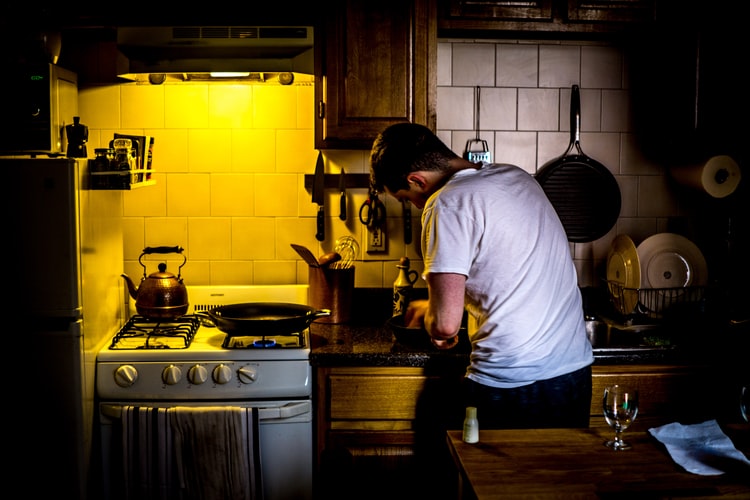I walk inside my home, one room to another, with pale walls and sunlight pouring in from the balcony – I see how much it has changed. I see the old chess board is out of the wooden cupboard. I see my cousins playing ghar-ghar in the backyard and there seems to be no distinction between who will make the dal and who will go to the office.
Just as I start feeling pleased about this, an older family member walks in and “corrects” the children.
But how do they know what is correct for them and what isn’t? At the end of the day, isn’t it about what we teach them?
Society has created distinctions which we religiously follow. All these years, I have seen the men of my family sit at the dinning table, waiting for hot food, while the women work in a hot kitchen because ‘fan chalaya to khaana kaise banega? (how will we cook, if we switch on the fan?)’.
I was taught the same, like most other kids. I was told I have to serve the men, the breadwinners of the family; that I couldn’t earn because I was a girl. Somehow, I never fully grasped this concept and fought against it to the best of my abilities.
Now, with the pandemic, we’re locked inside – all of us, around the world.
At home, the men have started to participate in household work – it took a pandemic to make that happen. But I don’t think they’ve understood the core of the issue at hand; the ingrained patriarchy in them still exists when it comes to social norms and gender bias.
Have you ever seen a man struggling in the kitchen when they want to find sugar for their coffee? Many men don’t think they need to know such things – as though it would make them less of a man.
More so, when men cook, it’s treated like a celebration – because it happens rarely and is almost treated like an event. Instagram is full of stories posted with the hashtag #husbandcooking – how often do you see the reverse?
At home, when my brother started helping in the kitchen, he would only cook whenever he wanted to eat something fancy. Plus, he would always seek validation, which we would readily give. We would tell him how tasty the chicken was, even though it was often a little spicy.
Also read: The Colour Pink, Feminism and How I Came to Love Cooking
Now, he helps out regularly in the kitchen, and cooks every day.
But while I work, and see him boiling the milk, washing the dishes or making rotis in the kitchen – I feel guilty. Guilty watching him make rotis.
Why? Why do I feel this guilt? Isn’t equality before gender what I always wanted?
I remember an incident from when we were younger. One hot summer day, my brother was in the kitchen and chopping vegetables. My aunt was making rotis. When my uncle saw this scene, he shouted at her, saying, “Are you out of your mind? Can’t you cut the ladyfingers?”
He yanked my brother out of the kitchen. When I went outside to look for him, I saw him sitting in the hall doing nothing. Just before that, I had seen my aunt stopping my brother from doing as little as cutting vegetables.
“Few tasks are more like the torture of Sisyphus than housework with its endless repetition,” wrote Simone de Beauvoir in The Second Sex (1949). “The clean becomes soiled, the soiled is made clean, over and over, day after day.”
I realise now, where the guilt comes from.
When my brother was stopped from doing something as minute as this, I too somehow internalised the oft-repeated lesson that ‘it isn’t right to have men in the kitchen’. I was always against the patriarchal mindset, but this incident had a deeper impact on me than I realised.
I never thought this kind of guilt would ever be fostered within me – but it happened. It feels like it was always there, crawling in my mind. But who do I blame? The men in my family who created these distinctions or the women who never protested? Or should I blame myself? I protested in some situations, but only to a certain extent.
We are caught in a vicious cycle, a cycle that is peddled by everyone. It’s a tug-of-war between two sections of the society. I will be happy on the day when seeing men in kitchen will not be a matter of celebration. If men help shoulder the household burden, it would be a different world.
The difference between my uncle and my brother grows wider by the day. My brother has never been patriarchal per se, but he now understands what went on for all those years while he was just a mute spectator.
Now that we’re well into ‘Unlock 1.0’ , I am eager to see how much of this growth will be sustained.
Aafreen Khan is a postgraduate student in Convergent Journalism, at AJK Mass Communication Research Center, Jamia Millia Islamia.
Featured image credit: Aaron Thomas/Unsplash

